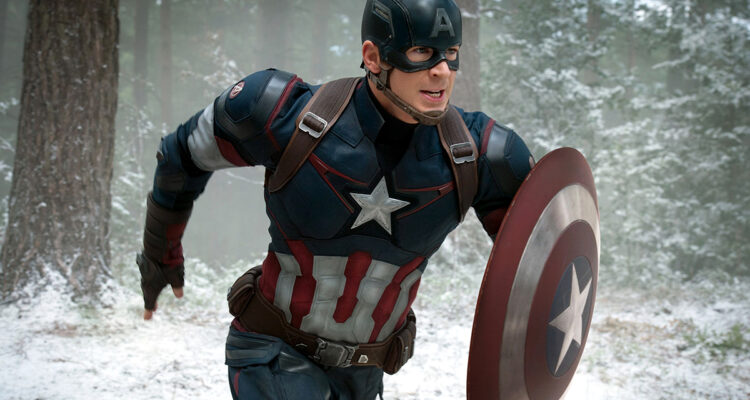Fangirling is defined by Merriam Webster as a girl or woman who is an extremely or overly enthusiastic fan of someone or something. I’ve been a self-declared Chris Evans fangirl since 2004 ever since I first saw Chris in Cellular – a thriller film literally based on the wonders of a cell phone (a flip-phone which constantly ran out of minutes – a relic of its time).
My love for him waned over the years, but was reborn after seeing Rogue Captain America with the long, disheveled, un-showered hair and THAT beard.
The beard really elevated his appeal to new heights, and no, the point is not open to debate. So it was only natural that he would be the muse for Scott Ritchie – the cocky, yet soft-hearted fire-fighter love interest in my debut rom-com, Set On You.
To understand what I mean by using him as my “muse,” here is a little sneak peek into a day in the life of my routine writing Set On You:
- Check my probably-empty inbox (refresh a couple of times for good measure)
- Write precisely three words in my steamy scene before losing all inspiration
- Re-gain inspiration by consulting my Chris Evans Pinterest board for photos of oiled abdominal muscles
- Google ultra-HD zoomed shots of Chris Evans’ eyes for scientifically accurate color description
- Watch at least five YouTube videos of Chris Evans to study mannerisms and voice
- End the day with an Avengers marathon (IT’S RESEARCH, OKAY?!)
(*Dear Chris Evans, if you’re reading, I promise I’m not a stalker. Please don’t have me arrested.)
Of course, I’m exaggerating (mostly). A day in the life of a romance author is filled with much more spiraling and existential dread. But I’ll save that for another time. The point is, one of the best parts of being a romance author is being able to thirst over hot celebrities and still call it “work.”
Look, I know what you’re thinking. Admiring a hunky celebrity’s ropey forearms and kind eyes and feverishly pinning them to my Pinterest board is NOT WORK. It’s creepy. It’s thirsty. It’s borderline stalker-ish. Maybe so.
One thing readers always love to know is whether authors have celebrity fan-casts for their characters. The truth is, that each author has a unique process. And no process is right or wrong. Some writers don’t require any visual inspiration to develop their characters. Some only need to see fuzzy, opaque blobs of people inside their heads as they write. Others require a fully fleshed-out description. And some even require a full-on muse.
If you haven’t caught on by now, I, Amy Lea, fall into the third category. But what can I say? I’m a visual person. While I can zero or fast-draft a book (a bare minimum skeleton of the manuscript) without a fully fleshed-out character sketch, the layering of physical description and even the backstory of the characters is easier to come by when I can imagine the person. And what better way to visualize a person than through a celebrity?
A-list celebrities make for the easiest muses, aside from real-life people. Call me if you have a real-life Chris Evans you can use as a muse. If there aren’t any A-listers that tickle your fancy, you can also draw inspiration from reality stars, news anchors, athletes, models, politicians, or any public figure, really. For example, the physical description for my main character, Crystal, was inspired by an Instagram model.
In my experience, A-list celebrities are ideal because there are a plethora of materials to take inspiration from. You have your photos for general aesthetic and vibes. There’s probably a large roster of their works floating about on the internet, whether film, television, or music. This is especially helpful if you’re inspired by one of the characters they play. They’ve also likely partaken in multiple interviews as their true selves.
Video interviews are a goldmine because you can study their laugh, the way their lips turn up with their smile, their physical mannerisms – all their idiosyncrasies. For example, Chris Evans has a very particular laugh where he tosses his head back and clutches his man-boob. The harder he laughs, the farther he tilts his head back (sometimes he’s practically horizontal). This was something I took as inspiration. Podcast interviews work well too because you can study the tone, rhythm, and cadence of their voice.
It isn’t to say you must take 100% of your inspiration from the muse for your character. But you can likely find bits and pieces that resonate. Alternatively, you can use a mashup of different celebrities’ or characters’ personalities or physical appearances.
Imagine a hero based on all the Hollywood Chris-es at the same time!
If you’re a writer like me who struggles with visualization, I highly recommend finding a muse! Not only might it unleash endless inspiration for your character, but the research stage (creating a permanent couch groove watching hours of Netflix in the name of art) is an absolute blast.
Amy Lea is the author of the debut enemies-to-lovers rom-com Set On You (Berkley, May 10), a fresh take on
self-acceptance that feels very relevant to the millennial reader with its 90s pop culture references, but will also appeal to the Gen-Z audience with a young first-person voice and plenty of steam. Great for fans of One to Watch by Kate Stayman-London, Spoiler Alert by Olivia Dade, and The Love Hypothesis by Ali Hazelwood, Set On You takes an unprecedented perspective on self-love and body image perfectly represented in MC Crystal, who finds her strength in the gym while still loving her mid-size body. Set On You is a story with themes of pop culture and overcoming cyberbullies.


